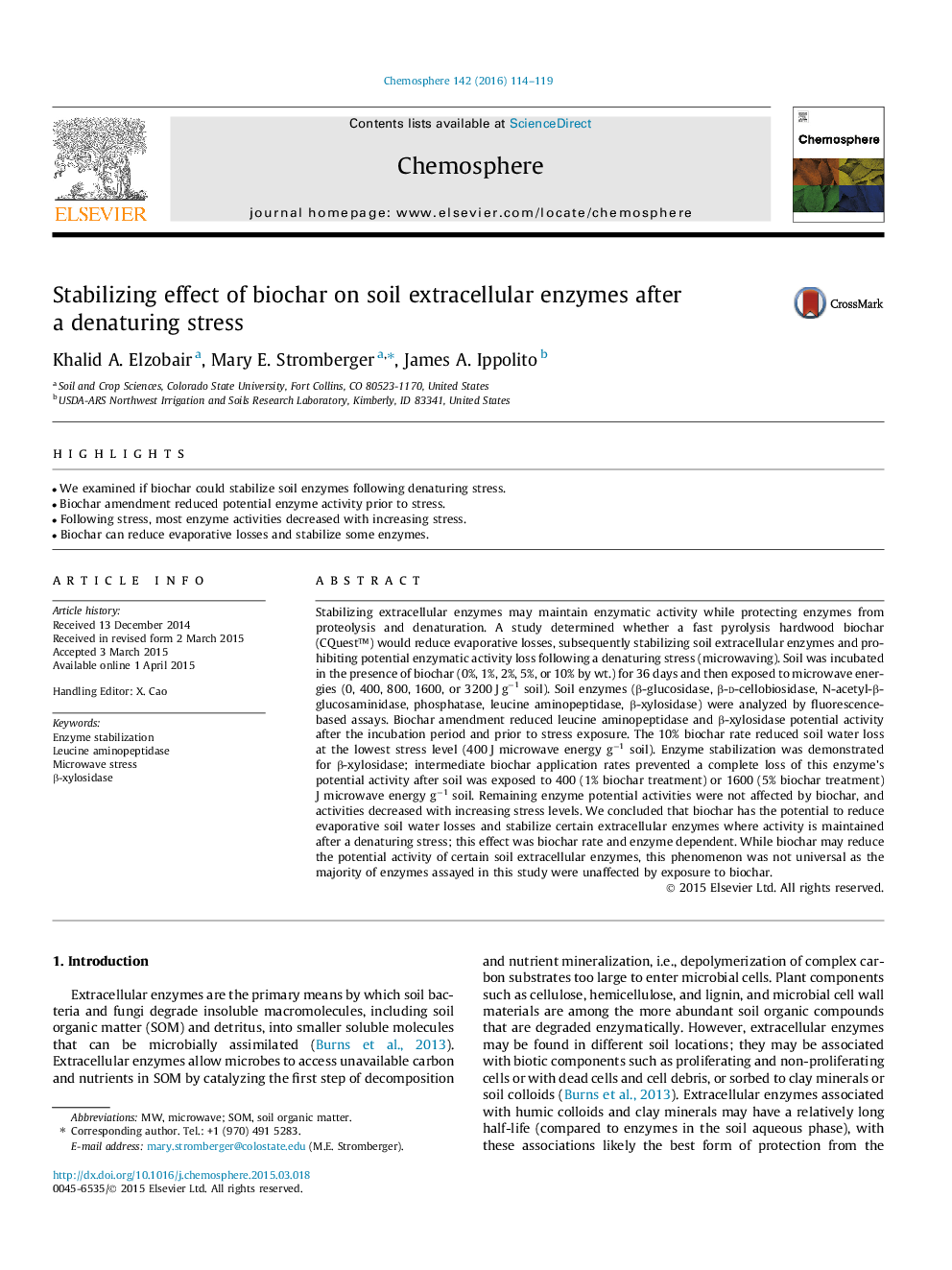| کد مقاله | کد نشریه | سال انتشار | مقاله انگلیسی | نسخه تمام متن |
|---|---|---|---|---|
| 4408080 | 1618829 | 2016 | 6 صفحه PDF | دانلود رایگان |
• We examined if biochar could stabilize soil enzymes following denaturing stress.
• Biochar amendment reduced potential enzyme activity prior to stress.
• Following stress, most enzyme activities decreased with increasing stress.
• Biochar can reduce evaporative losses and stabilize some enzymes.
Stabilizing extracellular enzymes may maintain enzymatic activity while protecting enzymes from proteolysis and denaturation. A study determined whether a fast pyrolysis hardwood biochar (CQuest™) would reduce evaporative losses, subsequently stabilizing soil extracellular enzymes and prohibiting potential enzymatic activity loss following a denaturing stress (microwaving). Soil was incubated in the presence of biochar (0%, 1%, 2%, 5%, or 10% by wt.) for 36 days and then exposed to microwave energies (0, 400, 800, 1600, or 3200 J g−1 soil). Soil enzymes (β-glucosidase, β-d-cellobiosidase, N-acetyl-β-glucosaminidase, phosphatase, leucine aminopeptidase, β-xylosidase) were analyzed by fluorescence-based assays. Biochar amendment reduced leucine aminopeptidase and β-xylosidase potential activity after the incubation period and prior to stress exposure. The 10% biochar rate reduced soil water loss at the lowest stress level (400 J microwave energy g−1 soil). Enzyme stabilization was demonstrated for β-xylosidase; intermediate biochar application rates prevented a complete loss of this enzyme’s potential activity after soil was exposed to 400 (1% biochar treatment) or 1600 (5% biochar treatment) J microwave energy g−1 soil. Remaining enzyme potential activities were not affected by biochar, and activities decreased with increasing stress levels. We concluded that biochar has the potential to reduce evaporative soil water losses and stabilize certain extracellular enzymes where activity is maintained after a denaturing stress; this effect was biochar rate and enzyme dependent. While biochar may reduce the potential activity of certain soil extracellular enzymes, this phenomenon was not universal as the majority of enzymes assayed in this study were unaffected by exposure to biochar.
Journal: Chemosphere - Volume 142, January 2016, Pages 114–119
